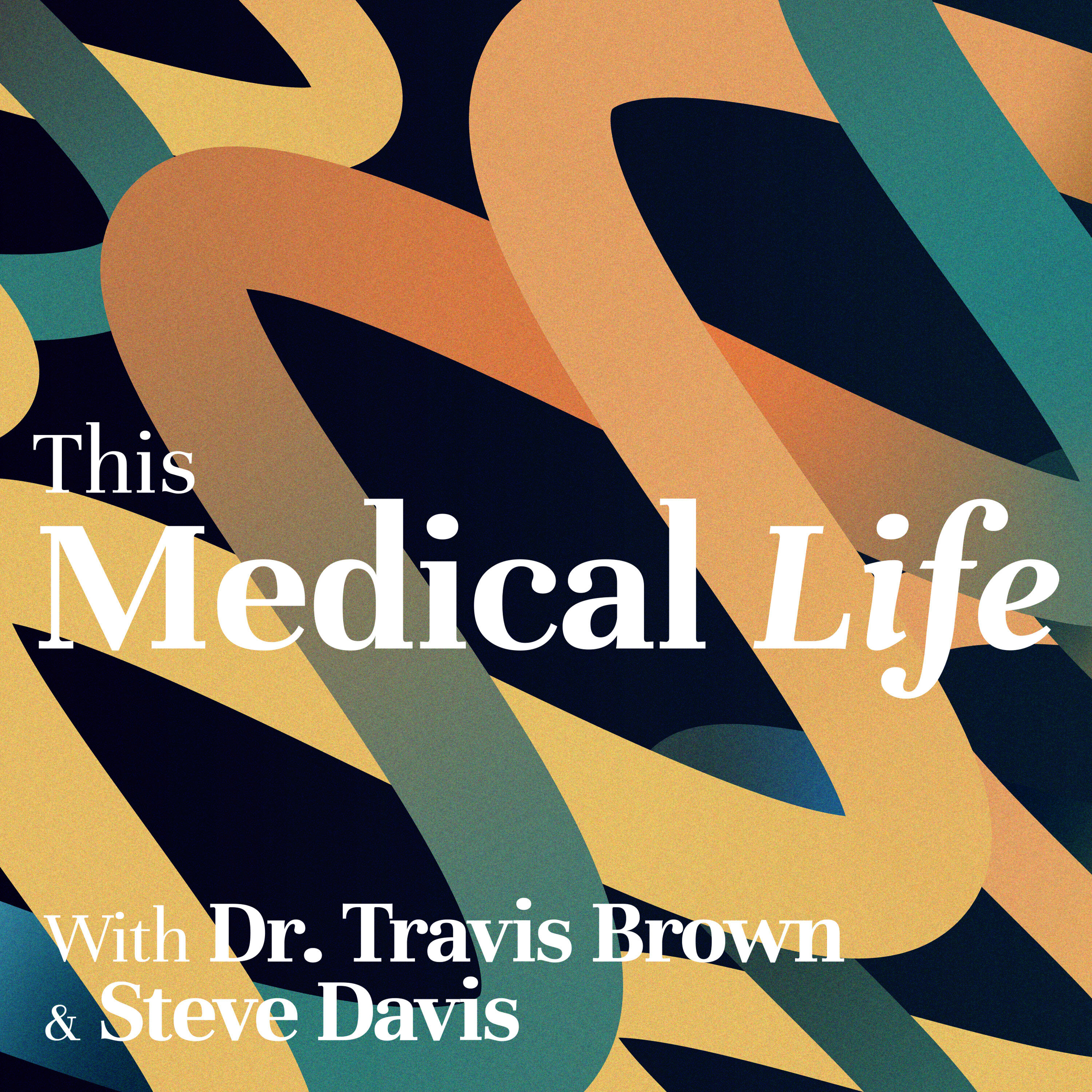Episodes
The lifetime risk for colorectal cancer is 1 in 23 men and 1 in 25 women. Detecting and diagnosing cancer is a critical step in managing a patient’s health as well as the multidisciplinary team where their care is discussed.
This is the second episode of a three part series on colorectal cancer.
This episode focuses on diagnosis.
Many thanks to Dr Tristan Rutland who helped organise this series.
This is the story of colorectal cancer (part 2).
Our special guests:
Dr Milan Bassan:...
Published 11/11/24
Colorectal cancer accounts for ~10% of all new cancer diagnoses. Fortunately, over the last three decades, the 5 year patient survival has increased from 56% to 71%. As with most cancers, the key to good outcomes is early detection. This is the first episode of a three part series on colorectal cancer. This episode focuses on screening.
Many thanks to Dr Tristan Rutland who helped organise this series.
This is the story of colorectal cancer (part 1).
Our special guests are:
Professor Ken...
Published 10/28/24
Published 10/28/24
This is the story of troponin.
Published 10/14/24
In this milestone 100th episode, we reflect on the life of Oscar Wilde, exploring the intersections of his legacy and the evolution of modern medicine.
Published 09/30/24
This is the story of Janine Watson’s journey from MS diagnosis to history making Paralympian. And how listening to a particular episode of This Medical Life changed her future.
Published 09/16/24
Reflecting On Series 5: Key Moments, Medical Insights, And Listener Impact In This Episode Of This Medical Life. A Must-Listen For Catching Up On Medical Breakthroughs.
Published 09/02/24
Thyroid lumps have always been with us. Often referred to as goitres (interpreted from Latin to mean neck swelling), numerous ancient medical sources mention these and how to manage them.
Published 08/19/24
Thyroid lumps have always been with us. Often referred to as goitres (interpreted from Latin to mean neck swelling), numerous ancient medical sources mention these and how to manage them.
Published 08/12/24
A common myth about epilepsy is that women who suffer from this condition should avoid getting pregnant. This is simply not true. It can be safely managed for both the mother-to-be and future child. Epilepsy is not a contraindication for pregnancy.
Certainly there are additional precautions and steps that should be taken when a woman who has epilepsy is considering starting a family and it requires a multidisciplinary approach.
This is the story of pregnancy and epilepsy.
Our special...
Published 07/29/24
This is the story of Tonsillectomies.
Published 07/15/24
Explore lactose intolerance's genetics with Drs. Michael Page and Melanie Galea on This Medical Life Podcast.
Published 07/01/24
Episode 61: Pelvic Pain And Endometriosis | More Than The Black Spots
Published 06/17/24
Discover the risks of Vitamin B6 toxicity with Dr. David Kanowski on This Medical Life Podcast, exploring its neurological impact.
Published 06/03/24
Explore scleroderma's history, symptoms, and treatments with Dr. Daman Langguth on This Medical Life Podcast, Episode 59.
Published 05/20/24
Discover the history of Rocky Mountain spotted fever, once called 'tick fever,' with Prof. Stephen Graves on This Medical Life Podcast.
Published 05/06/24
Episode 57: Fantastic Faeces and Where to Find Pathogens. Dive into Metapanel, detecting hundreds of pathogens in one test, transforming diagnostics.
Published 04/22/24
Explore iron deficiency with Prof. Ken Sikaris on This Medical Life Podcast, covering diagnosis, risks, and management for healthier outcomes.
Published 04/08/24
Explore The Culture Of Medicine And The History Of Opium With Mic Cavazzini from the Pomegranate Health Podcast, In This Special Crossover Episode.
Published 03/25/24
Uncover strategies for CTE prevention and the role of advocacy in Part 2 of This Medical Life Podcast, focusing on reducing contact sport risks.
Published 03/11/24
Dive into the origins and evolution of CTE research, from 1928's 'punch drunk' findings to today's understanding, in This Medical Life's CTE story.
Published 02/26/24
Explore 2024 CPD requirements for doctors with Rachel White on This Medical Life Podcast. Approved genetics modules now offer CPD hours.
Published 02/12/24
And that’s another year done. A huge thank you to all of our guest speakers who have been generous with their time and expertise. We would also like to thank our listeners and hope you enjoyed the episodes.
This episode is a mini reflection on this year’s episodes, a link to one of Steve’s favourite podcasts, some TML clips, and an embarrassing memory lapse on my behalf…thanks for keeping that part in Steve & Tim.
Random acts of Medicine on EconTalk...
Published 11/28/23
During the mid-twentieth century, menopause was touted as a severe disease that destroyed women’s femininity and was a burden to their husbands. Thankfully, today we recognise menopause as a natural part of ageing and conversations about it are happening more and more.
In this episode, we have four special guests:
Niki Bezzant: award-winning writer, author, journalist and media personality from New Zealand who has written the book ‘This Changes Everything: the Honest Guide to Menopause and...
Published 11/13/23
In July 2020 in the midst of a global pandemic, we released our first episode called ‘What is pathology?’ with This Pathological Life podcast. We hoped to create something that would entertain and education the audiencem and shed light on to some of the amazing stories and characters in medicine.
In creating these podcasts, I am always thankful and appreciative to our guests who willingly give their time and expertise. If there is anyone who has excited our audience, been an inspiring...
Published 10/30/23


